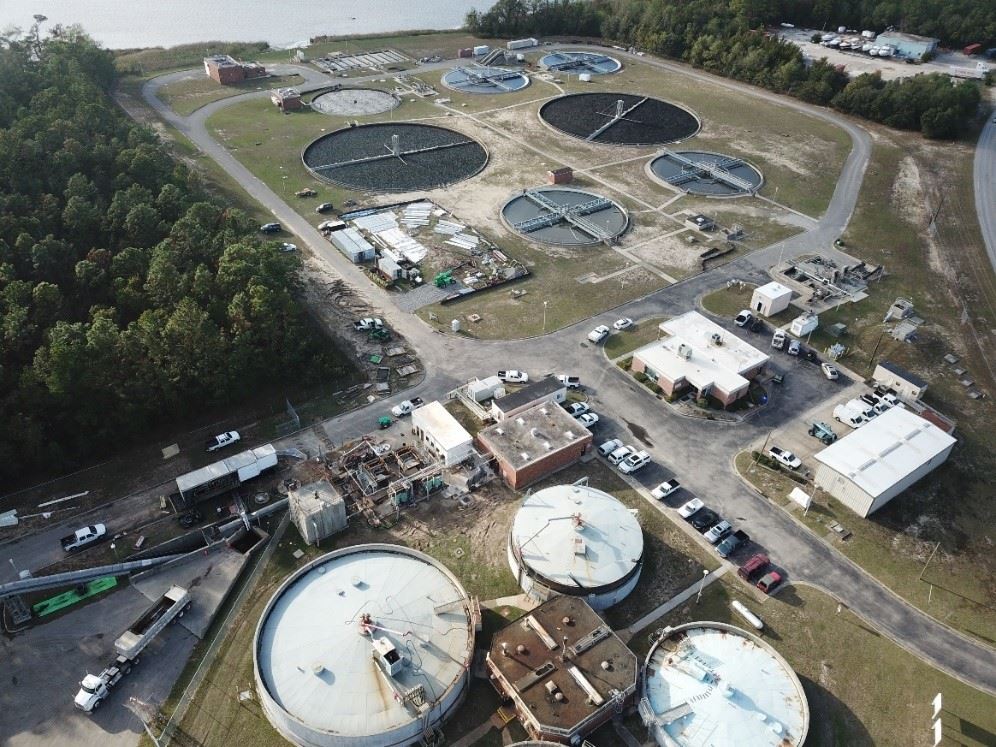North Carolina’s coast will see more than $50 million in funding for drinking water, wastewater and stormwater infrastructure projects, with $40 million of that going to the Cape Fear Public Utility Authority.
The State Water Infrastructure Authority approved awards for 70 projects in 30 counties Tuesday during its meeting. The authority is an independent body with primary responsibility for awarding federal and state funding for water infrastructure projects.
“Strong water and wastewater systems are vital for safe drinking water and economic development,” Cooper said in a statement. “Thanks to federal funding from the Biden-Harris Administration and state appropriations we’ve made historic investments to rebuild and replace aging systems, especially in rural communities, which will make our state stronger.”
The 70 projects were chosen out of the 221 eligible applications from 65 counties, requesting $2.64 billion. A list of all projects is available on the Department of Environmental Quality website.
“Replacing aging infrastructure and adding the capacity to remove forever chemicals from drinking water benefits the health and pocketbooks of North Carolinians,” said DEQ Secretary Elizabeth S. Biser. “Funding these projects supports the future success of communities across our state.”
The Cape Fear Public Utility Authority provides drinking water for the Wilmington area and New Hanover County.
Public Information Officer Cammie Bellamy explained Thursday that $35 million in low-interest loans will support replacing the authority’s Southside Wastewater Treatment Plant.
The plant was built in 1972 and parts of its infrastructure are nearing the end of their useful life. The replacement and expansion of this facility is the largest capital project in CFPUA’s history, with construction costs estimated at $250 million. This is the third low-interest loan the utility has been approved for through the state. The project was awarded $35 million this winter and $35 million in the summer of 2023.
The $5 million in grants and loans from the Bipartisan Infrastructure Law Drinking Water State Revolving Fund will go to the state’s galvanized service line replacement project, Bellamy continued.
Under the Environmental Protection Agency’s revised lead and copper rule, all water systems in the United States are required to complete a survey of water service lines in their systems by October.
“This is to determine whether there are any lead service lines across their systems. CFPUA’s survey has been underway since 2020, and while we have not found any lead service lines we have found a few hundred older galvanized service lines. CFPUA is replacing all of these galvanized lines as part of this project,” Bellamy said.
“We are very grateful to the State Water Infrastructure Authority for this funding, which will allow CFPUA to advance these critical projects while saving our customers money,” she added.
The town of Hertford will receive $3 million for a wastewater treatment plant rehabilitation project.
Gates County, designated as distressed, will receive $1.3 million for the Buckland School Wastewater Improvements Project, $2.81 million for the Cooper School Wastewater Improvements Project, and $233,000 for an asset inventory and assessment.
Asset inventory and assessment grants from the Viable Utility Reserve are considered a vital step in planning and inventorying that can lead towns on a path to future viability, according to the state.
Other coastal local government units designated as distressed that were selected for asset inventory and assessment grants include the town of Creswell, which will receive $325,000, and the Swan Quarter Sanitary District, which will receive $250,000.
Another Hyde County community, Fairfield, will receive $3.6 million for drainage ditch improvements.
Jacksonville will receive $2.27 million that will go to equipment for its public utilities complex.
The city of Washington will receive $460,000 to perform a lead service line inventory.
The awards also include funding to address per- and polyfluoroalkyl substances, or PFAS, for local government units in Goldsboro, Lenoir County, Orange County and Rocky Mount.
The application period for fall funding for drinking water, wastewater, lead service line and emerging contaminants projects opens July 30 and ends at 5 p.m. Sept. 30.
There will be five, in-person training sessions in the coming weeks, with the closest to the coast being Aug. 8 in Kinston. The meeting in Raleigh Aug. 9 will be live streamed. Visit the the division website for registration information and other locations.

